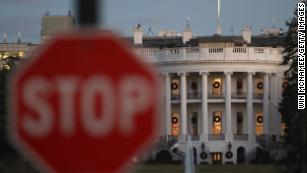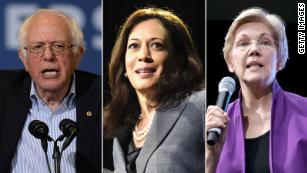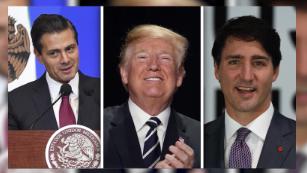Democrats head into 2019 split on everything but Trump

Enten: 2020 Dem nominee likely in race by March 03:13
(CNN)Democrats are coming into control of the House and entering the 2020 presidential primary unified in their opposition to President Donald Trump -- but split on almost everything else.
Expanding access to health care is a clear priority, but there is no consensus on how to do it. Progressives are pushing for a "Green New Deal" -- a comprehensive package that would reimagine the US economy and the government's place in it -- that has been met with skepticism, and a few notes of hostility, by party centrists. Other fights are brewing over raising the national minimum wage, trade and Middle East policy.
These internal disputes will play out on two stages over the coming year -- the floor of the newly Democratic-controlled House, and in the 2020 primary debates, which begin in June.
Party angst over how to beat Trump in 2020 will fuel these fights, with establishment forces worried about alienating the suburban moderates who powered the party's 2018 wave while the insurgent progressives make the case that only bold new initiatives can renew -- and turn out -- its working class base.
Sponsor content by twofour54
Why these storytellers love this creative hub
In a competitive world that demands new content, you have to be in the right place to capture the moments that matter.
Here is a look ahead at some of the debates that will animate the coming year.
Getting real about 'Medicare for all'
"Medicare for all," a form of single-payer health care, is the party's most popular big-ticket proposal for delivering on its promise of universal health care -- a solution to the ongoing challenges facing the Affordable Care Act that even former President Barack Obama seemed to endorse in a speech this past fall.
Lawmakers and liberal think tanks began to sketch out the narrower terms of the debate in 2018, rolling out a variety of plans that would either chart a path to universal government-backed care or expand coverage by allowing Americans to "buy in" to programs like Medicare or Medicaid.
The push for a "buy in" offer, which would effectively create some form of the "public option" scuppered by Congressional Democrats during the Obamacare negotiations in 2009, was given a boost during the party's leadership scramble after New York Rep. Brian Higgins, secured an assurance last month from Nancy Pelosi to prioritize a plan to allow people 50 and older to buy into Medicare.
But with Democrats still in the Senate minority and shut out of the White House, proponents of more comprehensive reform are unlikely to accept compromise terms.
Last year, independent Vermont Sen. Bernie Sanders, a likely 2020 candidate who caucuses with the Democrats, secured 16 cosponsors to his latest and most detailed legislation, which introduced a four-year plan for gradually moving millions of Americans onto the rolls of a beefed-up version of Medicare.
At least five of the names on the bill, in addition to Sanders', are considering runs in 2020 -- New York Sen. Kirsten Gillibrand, who helped write the transition plan, New Jersey Sen. Cory Booker, Massachusetts Sen. Elizabeth Warren, California Sen. Kamala Harris and Oregon Sen. Jeff Merkley.
"There's going to be a question if any of those (other potential presidential candidates) take power: Do they actually want to create a single-payer program or is it just a messaging strategy to win people over with big ideas?," Waleed Shahid, a spokesman for the progressive group Justice Democrats, told CNN. "Do they support the end of private health insurance in the United States of America. Because that is what the bill is proposing to do. We're going to get way more into the specifics than we did in 2016."
Raising worker wages
Since Democrats last held the House in 2010, a movement for higher minimum wages has swept through the states, making $15 an hour the new benchmark for a livable income. A bill to move the national minimum wage to that level by 2024 is on the Democratic to-do list — but already, some on the left think that's too timid.
The proposals attracting the most attention, if not votes, are those that super-size the federal safety net and provide a public option for employment meant to raise wages by creating more competition for workers.
Harris' LIFT Act would expand the Earned Income Tax Credit to so many people that it resembles a "universal basic income," an idea that has gained momentum over the past year. Alternatively, Sanders and Gillibrand have proposed a federal "job guarantee," which would provide employment on public works projects to whomever wants to work.
But the bulk of the caucus probably won't go that far. Members of the moderate New Democrat Coalition are coalescing behind a proposal from Alabama Rep. Terri Sewell that would create regional minimum wages pegged to the variable costs of living, from midtown Manhattan to Beckley, West Virginia. According to a framework devised by the centrist think tank Third Way, wage floors would range from $9.30 in the cheapest places to $11.90 in the most expensive.
The debate is playing out against a difference of opinion around the root causes of stagnant wage growth.
Centrists see the problem as a failure to help workers adapt to the trends of automation and globalization, which demands fixes such as more job training, apprenticeships, and vocational programs to equip them for high-demand careers like nursing, advanced manufacturing, and data science.
On the progressive left, however, a consensus is emerging that the real challenge is the rise of corporate consolidation and the decline of worker bargaining power. That in turn has allowed businesses to funnel excess profits to shareholders rather than higher wages, which would incentivize workers to pursue the type of education that made the most sense for them financially.
In order to take aim at that issue, Democrats like Booker and Wisconsin Sen. Tammy Baldwin have introduced bills that would restrict companies' ability to buy back their own stock as well as direct federal regulators to scrutinize corporate mergers more carefully.
"We think what's really important is that policymakers are articulating a diagnosis of the economy that really centers the role of outsized corporate power, and the role of government to curb that power," says Stephanie Sterling, vice president for advocacy and policy at the Roosevelt Institute. "We're not going to upskill our way to an economy where working people are getting a fair share."
Hooking infrastructure money to the end of fossil fuels
Pretty much everybody in Washington agrees that America's deteriorating roads, bridges, train tracks, transit networks and utilities need a surge of investment. But some Democrats argue those fixes should be wrapped into a plan to phase out fossil fuels entirely and massively scale up capacity for renewable energy generation in an effort to address global warming and lingering joblessness in one fell swoop.
An energized grassroots coalition led by freshman New York Rep. Alexandria Ocasio-Cortez waged a campaign against House leadership to set up a select committee focused on crafting a "Green New Deal," which would decarbonize the economy and provide universal employment.
The campaign for a committee failed, and there are still parts of the Democratic Party — such as transportation and building trade unions, whose members currently depend on continuing investment in highway construction and natural gas pipelines — who remain skeptical. But activists have vowed to keep fighting for the proposal as infrastructure plans surface in the next session, and they already have the support of 43 current or incoming members of Congress.
"The more momentum there is for a Green New Deal, the more that pulls the entire infrastructure debate in a bold direction," says Adam Green, co-director of a left-wing advocacy group called the Progressive Change Campaign Committee. "It's not crazy to think that we could leave this year with 100 or even 150, 200 members who believe the Green New Deal is a North Star for when we have more power in 2021."
A delicate line on trade
In 2016, the Democratic establishment was blindsided by how much anger Trump channeled by invoking the harsh legacy of trade deals in the industrial Midwest. Now they have to figure out how to heed that anger, while also avoiding Trump's chest-thumping rhetoric on tariffs, which turns off voters in both agricultural and urban districts.
"I think there's a danger with agreeing too much with Donald Trump on trade," said Third Way policy vice president Jim Kessler. "We've seen the price that we're paying for tariffs. There's a difference between getting tough on China and igniting a trade war."
The new Congress will be forced to confront trade issues by way of a vote on the update to the North American Free Trade Agreement. Few Democrats are completely happy with the re-branded U.S.-Mexico Canada Agreement, but enough of them view it as a step in the right direction — curtailing corporations' right to sue nations over restrictions on investments, for example — that it has a chance of passing, with some tweaks.
The problem is, the changes demanded by trade-skeptical Democrats may lose votes among more conservative Democrats, not to mention Republicans. A band of progressives led by Rep. Rosa DeLauro of Connecticut have demanded stronger enforcement mechanisms for the new labor and environmental standards, as well as a rollback of the intellectual property protections that grant pharmaceutical companies years-long monopolies on drugs.
What happens in this fight will matter in 2020, as Democrats try to avoid letting Trump claim victory on trade while also dropping the established position that globalization creates more winners than losers.
A new direction for the Middle East?
Democratic leaders have rushed to embrace their historically diverse slate of nominees. But as those newly elected voices enter Congress, a vexing question hangs on the horizon: When it comes to Israel, the Palestinians and the Middle East, does the party establishment really want to hear what they have to say?
Trump's own renewed focus on the Middle East -- including his withdrawal from Syria, his reaction to the killing of Saudi dissident journalist Jamal Khashoggi and the ongoing war in Yemen -- have returned focus to the region generally at a time when peace negotiations between the Israelis and the Palestinians have collapsed.
Incoming lawmakers like Michigan's Rashida Tlaib and Minnesota's Ilhan Omar are all challenging mainstream Democratic orthodoxy over the US' relationship with Israel.
The first two Muslim women elected to Congress, Tlaib and Omar have expressed support for the movement to boycott Israel over its activities in the West Bank and Gaza. BDS, which stands for Boycott, Divestment, Sanctions, is a controversial program that has been met with harsh opposition by Israel and its supporters — particularly elected officials in the American government. A Senate bill called the Israel Anti-Boycott Act, which would ban US companies from taking part in international boycotts like BDS, pits sponsors from both parties against progressive rivals and groups like the American Civil Liberties Union, which opposes it on free speech grounds.
The bill remains in limbo for now, stalled after Sanders and Caifornia Sen. Dianne Feinstein stated their opposition in a letter addressed to Majority Leader Mitch McConnell and Minority Leader Chuck Schumer. "While we do not support the Boycott, Divestment and Sanctions (BDS) movement, we remain resolved to our constitutional oath to defend the right of every American to express their views peacefully without fear of or actual punishment by the government," Feinstein and Sanders wrote.
"Straight up, the party is not ready for the debate that is coming," one senior Democratic Senate aide told CNN. "It is an overdue debate and my strong sense is that no, the party is not ready to have it — look who the foreign policy leaders are. But that doesn't matter because it's coming."

















No comments:
Post a Comment